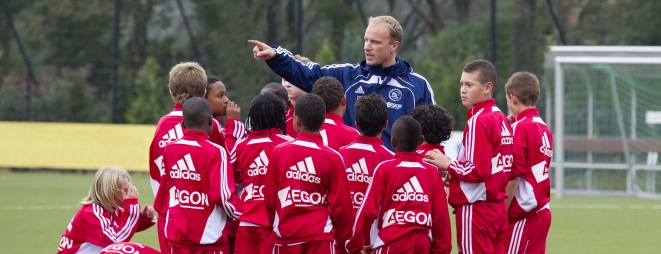Late last year Football Kenya Federation launched the 10-year strategic plan for the development of football in Kenya. I have not managed to trace the document but I have read references to the same. One of the key proposals by the federation is to have an expanded premier league, from 16 to 18 teams; an approach that seeks to give more players a chance to grow and develop the standard and quality of the game. This is currently a major bone of contention in a war pitting the federation on one side and the Kenyan Premier League on the other, but that is a story for another day. This article aims to propose a strategy for football development in Kenya and Africa as a whole.
In a country where more than 40% of the population is aged between 0 and 24, the age where in my opinion talent can be discovered, nurtured and fulfilled, I think the proposed strategy does not suffice. From the face of things, it looks like a top-down quick fix approach that does little to aid the growth and development of football. Having two extra teams will only increase the number of participants by a maximum of 60 players; the quality of players would also be questionable. You might argue that the effect will trickle down the structure, but that is where the real question comes in: where is the structure?
The Education System
For football to grow and develop it is my view that Kenya and by extension Africa should take advantage of already existing structures, systems and facilities in coming up with a strategy. The education system is a great place to start; and more so at the primary school level, where enrollment is estimated at 112%.
During my primary school years, I always looked forward to break time and lunch time – food was rarely the reason. It was time to run down the field for a match of football. We would quickly organise ourselves into 2 teams, or in some cases we had organised to play against other classes so we had line-ups already drawn up. Break time match was too short, maximum 30 minutes, with the teacher on duty often having to “blow the final whistle”. The second half often started around 1 pm, usually after a quick bite. Never mind some times we would have up to 3 matches in one pitch, just don’t get in the way of the older boys!
However, the matches were not always possible, as some times we did not have a ball to play with. I remember once after a few weeks of not being able to play, Dann came up with a proposal. He could manage KES 300 and he wanted the rest of the class to contribute the rest. A good ball cost about KES 700 then. Within a week we had raised the money and we had a class ball – a show of great organisation and passion at an early age. This is something that football administrators should tap into.
In our quest to develop the great game, I believe we should take advantage of the school system. We should make football (and other sports) a key part of the school curriculum. In my primary school we had two periods per week dedicated to swimming classes and even though I did not like it I learned how to swim. Those who were naturally talented ended up doing very well, representing the school at various levels. They also got extra hours in the swimming pool during breaks and after regular classes all the time supervised by qualified trainers. Imagine if we had the same for football, where natural talent is in abundance. The facilities are already there as most primary schools have a football pitch. We should only look into ways of improving the same while protecting them from proxy owners.
Human Resource
Schools in partnership with the football federation can employ qualified or even trainee coaches who can supervise the game, teach the theories of the sport and identify and develop talents. We constantly complain about the lack of proper youth structures as one of the main reasons football has failed to develop in Kenya. Some people have tried to set up academies or hold tournaments to tap young talent but the results have not been forthcoming. In my opinion most of these academies are set up with very narrow and selfish goals, top of which is spot talent good enough for a trial in some European country. It is high time we considered developing talent for our own ‘market’ thereby raising the standard of the game. Only then will the international market value what we have to offer. A good number of talented players have travelled abroad in the name of trials only to return a few months down the line, often being told that they lack an understanding of the game.

My brief stint here in Europe has made me understand the reason behind the poor show of most Kenyan trialists. I have watched children as young as 6 participate in training sessions. Some of the drills they are being taken through are the things I was learning while playing for Strathmore University FC under my first qualified coach, Mickey Weche. I was over 20 years old then. Take the case of Wesley Sneijder, Dutch international currently playing for Galatasaray S.K, who joined the Ajax Youth Academy at the age of 7, the same time I was joining primary school. He is approximately 2 months older than I am. He graduated from the academy at the age of 16; I had still not played under a qualified coach. Of course the Dutch system is a very high bar to compare to, but what is clear is that we need a system that works for us. We have neither the resources nor the time to start investing in youth academies. We have schools. A few hours per week of organised football (and other sports) will not only develop and grow the game but will also help the youth develop key life skills such as confidence, leadership, teamwork and self-esteem. These are skills that even those who do not take up football as a career will find very useful.
A Tool for Economic and Social Development
Some might argue that developing football through schools is perhaps a lack of priorities for a country where formal education is greatly valued. It is interesting to learn that the same scenario is observed in the early medieval era where official orders were issued which sought to ban, control or restrict the game. In his book The Ball is Round – A Global History of Football, David GoldBlatt observes that at one point, there was a need for the populace to focus on archery as a rationale for controlling the game. A statute of Edward IV from 1477 reads, ‘No person shall practice any unlawful games such as dice, quoits, football and such games, but that every strong and able-bodied person shall practise with the bow for the reason that the national defence depends upon such bowmen.’
Indeed the prosperity of a country depends largely on the quality and spread of eduction, the modern-day bow, but you cannot underestimate the value of football (sports) in the same society; and the need for the two to co-exist in a bid to grow and develop the quality and standard of both.
With the current team, “TeamChange”, led by Nick Mwendwa having been in office for slightly over a year now it is rather unnerving that we still do not have a clear (documented) strategy on the way forward. Perhaps more time is needed and just to give credit where it is due we have already seen some improvements, especially in Women’s football. However, a lot remains to be seen and done in the coming year and beyond.






That is some pretty deep insight as to how to grow the game. The education system hasn’t been stable as well and thus having the federation take the game back to schools means the game would be jeopardized every time education system is changed. What do you think?
Oducobra I agree with you that the education system has also faced its fair share of troubles such as the recent teachers’ strikes. However, we can agree that the education system provides a much stable environment than the tried, tested and not so successful academies. When I point that education system I think football can benefit from the existing infrastructure, more accurate records and hence better progress monitoring not to mention the fact that we have schools in literally every corner of our country. So even when learning is temporarily interrupted the football(sport) can provide a productive pass time for the students
The ideas to change the game and create the youth structures have been great on paper but the implementation has been so poor if at all any has started to take place.
Going back to the school levels would be a good starting point.Look at all the money being used to sponsor the Kenya Secondary Ball Games every year by the private sector.
Well said and done master Wesaala, if only the so called football stakeholders could understand the goodness and worthiness of football and how it really helps the society in various aspects of life, they could appreciate and managed it with the respect it deserves.
Thank you for your comments Issa. When sport is viewed as a form of education coexisting with formal education then it will get the respect it deserves.
Good point Morris. A lot of money is now being used at the Secondary level which is a positive step. However, we should concentrate our efforts at the primary level and seek to instill the basics/theories of football in a controlled and organised environment.
This is deep. And I believe that if there was a way that the federation could get a chance to read your articles, it would create change. But our officials are blinded by greed…all they care is how much their pockets will develop at the expense of the talented kids. I pray that we would one day have our brother Odu in office and he would implement some of your ideas.
Good read.
Jijoh I agree that we do have a problem at the management level. One way we can control the effects of bad governance is put the game in a system that already has better governance structure and the some needed controls and that in my view is the education system.
Have you all thought about the example that was given by the author about Wesley Sneijder? He was recruited by Ajax at an early age, did this stop his education? No it didn’t. Why not use a different angle instead, keep the kids in their different schools and have particular schools with footballing tradition partner with teams in the top flight or academies and see how well sports & education can be integrated. Not all schools have exceptional talent but focused parents would easily get their kids learning for free while turning out for youth clubs. In a nutshell, the kids can start earning their own money at a very young age.
Oducobra, I really like the the way you have put it especially “…how well sports and education can be integrated.” However, I am against the so-called academies especially the way they are set up, like poor performing factories. I am of the view that academies in Kenya should only be run by registered football clubs and the clubs should not be promoted beyond the second tier without having a proper youth system. All other football development activities should be carried within the school environment.
At this level I would also be hesitant to bring in the financial. Focus should be be on talent development until players are eligible for professional contracts. Thought you might be interested in this article, very informative. http://www.nytimes.com/2010/06/06/magazine/06Soccer-t.html?pagewanted=all&_r=0
The article is good. You have underlined the academy part very well, most have a different agenda and money oriented. Few who have the game at heart.
To me the biggest stumbling block to prosperity of the sport in our country has been: 1.Parents 2.Teacher and 3. The Government – just as you said the mind set up of the 3 has been against sports and football believing education is key. The little time we get on weekends there is for extra tuition and church.
So our generation appreciated sports and its impact to the society. It is upon us to integrate it in the education system. Registered sports schools which offer both formal and sports educational system. The football leaders to be well versed with the game and have a good training on business management “sports is a business”. The government to support this activities with a clear knowledge that sports can clear a big chunk of the unemployed youth, which in return will impact in the countries economy…
Thanks for your comments Evoh. I really appreciate your point is especially on running the game as a business. This is something lacking in our Kenyan set up. I hope to explore this in subsequent articles.
I also appreciate your points on the 3 stumbling blocks, but I would not necessarily blame parents and teachers because they are always looking out for us. I once read a story on Champions Magazine published by UEFA about Wesley Sneijder. His teachers discouraged him from football in favor of education but he went ahead and followed his passion. So the mindset is pretty much the same. However, you must sympathize with our parents and teachers since the outcomes are less rosy in our case – we have very few footballing success stories.
I totally agree, primary schools and secondary schools can be used as the missing structures in the beautiful game. This can be enriched by seconding professionaly trained coaches to primary schools who can be identified and trained locally in a partnership between local federations, ministry of sports, developed countries football federations and academies and local clubs.
The trainers can impact the skills to school going children in different age sets while also offering training sessions to local clubs which are also not getting professional input in their training for league and local tournament preparations.
The ‘new’ constitution also offers a platform on which football can be organised, tapping from the above ideas and being managed at smaller sized units. I personally remember with nostalgia the hype, anticipation, excitement whenever Kangemi united was to play against Kawangware FC our arch rivals, Dagoretti Santos, ZULU from Kibera or flamboyant teams from Eastlands like Bedjos, Umeme among others.
The revival of intra-county tournaments and development of inter-county tourney could help bring back the interest while nurturing and developing talent.
I am with you on the intra-county and inter-county tournaments or rather leagues which in my view should mainly involve schools and be organized as you have mentioned in age sets. Local clubs like the ones you have mentioned should be controlled by ensuring they have proper governance structures before being allowed to participate in any official leagues. Otherwise they should be restricted to the seasonal tournaments.
South African countries have already adopted the school and sports mix. in their education system guys read half day and in afternoon its purely talent search and enhancement. We all know the fruits they are harvesting now. Time, guidance and facilities is all children and youth need.
Interesting. I was not aware that this was the case in Southern Africa. You have summarized it so well: Time, Guidance and Facilities. I believe the school environment provides just this. Thanks Chris.
I have a question with all this guys, where does this leave the student’s performance in class?
In my view student performance does not have to be impacted. However, in some cases it will and corrective measures should be sort. Also note that what I am proposing is not fully fledged football academies like we have in most developed countries. We need a balanced approach that works for us, as a developing nation to ensure the quality of education is not compromised.
Brian you are doing great justice to football growth and development in kenya and I appreciate your editorial work, my personal opinion would be you try to be lukewarm when it comes to federal issues coz looks to me like you are on the KPL side and thus inviting FKF fanatics to shy away from your rich n growing ideas.
Thank you Salim and you make an interesting observation. To be honest I am not very keen on the FKF/KPL wrangles and I do not wish to take sides. At the same time I do not want to water down my thoughts because to avoid being seen as supporting certain individuals/groups. My goal is to attract those who can identify with me and criticize objectively; hopefully the conversation will result in foundation for something better.
Hi Brian, One major obstacle in sport generally is the system of education which doesn’t allow the young footballers to play . Its even easier to play football in secondary school than primary school .
Yes Mulindi our education system has been a hindrance since it is very demanding academically and also in terms of time commitment. It is high time we recognised the value of sport and give it place in our development agenda.
Odu I believe it can work without having a negative impact on the kids formal education.What the intrested parties need to do is not only make the kids to like the game but to appreciate it and know its positive impact on the society and their lives just as its done in formal education. in that way the kids will focus more on the game..have more interest and I believe that an interested person is always eager to learn more and achieve. The interest and motivation part can be boosted by engaging the kids with some session with the big time players like Dennis Oliech, Victor Wanyama,McDonald Mariga, Musa Otieno.
Pingback: Infrastrategy | Brian Wesaala
Pingback: Lesson from the UEFA Youth League | Brian Wesaala
Amazing blog! Do you have any tips for aspiring writers?
I’m planning to start my own website soon but I’m
a little lost on everything. Would you recommend starting with a free platform like WordPress or go for a paid option? There are so many options out there that I’m totally confused ..
Any ideas? Bless you!
The advise I got when I wanted to start writing was “Just write…” Doesn’t really matter how you start, free or paid…that depends on how much you can afford. I chose WordPress for its simplicity and ability to scale. PS I am still a starter.